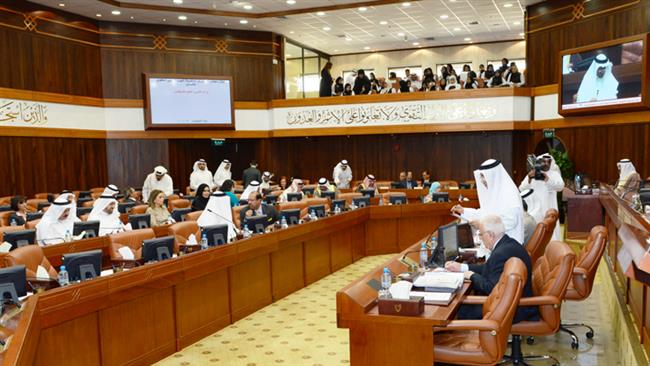
RNA - The Consultative Council, the upper house of the Bahraini parliament, voted for the measure Sunday, less than two weeks after it was approved by the Council of Representatives, the lower house.
The move saw Manama manipulating part of its constitution, which defines the identities of those who can stand trial at such courts.
Neighboring Saudi Arabia, whose influence radically sways Bahrain, has likewise redefined its anti-terror laws to expand the powers of its security forces in the face of political dissent.
Bahrain has been witnessing peaceful anti-regime protests since 2011. High-handed suppression of the rallies has led to widespread imprisonments and scores of deaths.
Hundreds of the detainees have already faced summary proceedings at military courts.
The country has already dissolved its biggest opposition party al-Wefaq and taken legal proceedings against its leader Sheikh Ali Salman and spiritual leader Sheikh Isa Qassem.
Reacting to the Sunday decision, the Bahrain Institute for Rights and Democracy advocacy group said, "This came from the Bahraini king and for him to sign off on this amendment means that he is personally approving the new repressive measure and all the consequences it will have."
"The responsibility for this de facto martial law lies at his feet," it added.
847/940